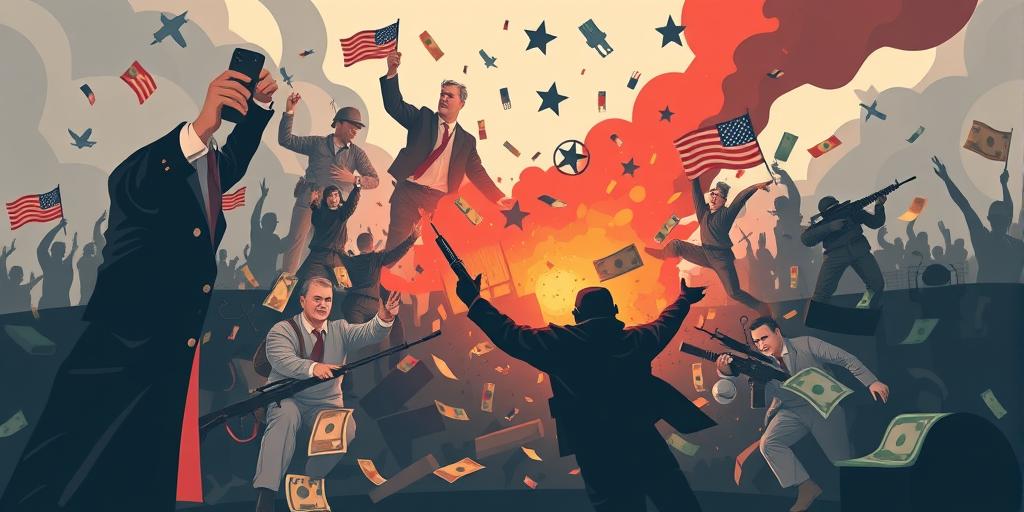How Dirty Politics Shaped America’s Foreign Wars
Hey everyone! Let's talk about something that's always fascinated (and frustrated) me: the messy intersection of politics and war. Specifically, how dirty politics at home can totally screw up America's foreign policy decisions. We're not just talking about a little backroom dealing here; we're talking about major decisions that have had devastating consequences.
I mean, think about it. Wars cost a fortune, right? And who gets to decide how that money is spent? Politicians. And guess what? Politicians are often motivated by things other than what's best for the country. Sometimes, it's about reelection. Other times, it's about lining their own pockets, or those of their buddies. And sometimes, it's about pure, unadulterated ego.
Take, for example, the Vietnam War. We all know how that turned out, right? A total disaster. But a lot of the decisions made during that conflict were driven by political calculations, not strategic or moral ones. You know what I mean? Politicians were more worried about looking tough on communism than they were about the actual lives of American soldiers or Vietnamese civilians. It's sickening to think about.
And it's not just Vietnam. We can see similar patterns in other wars, too. The Iraq War, for instance, was largely based on faulty intelligence, which was conveniently used to justify a political agenda. Let's be real, the evidence was weak, but the desire for war was strong. It's a recurring theme, isn't it?
So, what can we do about it? Well, that's the million-dollar question, isn't it? Increased transparency in government would be a good start, I think. We need to hold our politicians accountable for their decisions, especially when it comes to matters of war and peace. We need to demand more critical thinking and less knee-jerk reactions based on political expediency. Otherwise, we're just setting ourselves up for more costly and devastating mistakes.
This is a complex issue, and I'm not pretending to have all the answers. But I think it's crucial that we start having these conversations. We need to understand the ways in which political maneuvering can lead to disastrous foreign policy decisions. Only then can we hope to prevent similar tragedies from happening in the future. What are your thoughts? Have you ever considered this before? Would love to hear your take!









